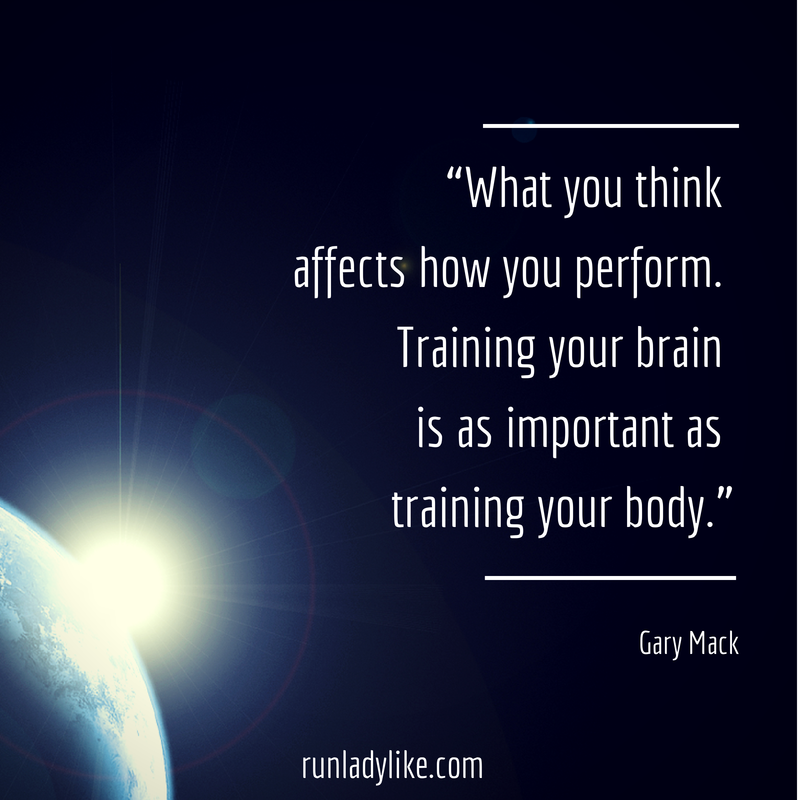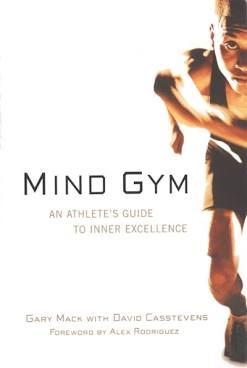Earlier this summer, I interviewed Orlando City Soccer Club player Chris Mueller on the Agents of Innovation podcast. One of the major highlights we covered in the interview was the fact he has recently started a book club, one he calls the “Be The Best” book club. I am a member and I encourage anyone interested in reading – especially a lot of personal growth type books – to join. During the interview, Chris told me that the book that really got it started for him, which he read while he was in college, was Mind Gym by Gary Mack and David Casstevens. I read the Audible version of the book and took notes.
While the book is primarily designed for athletes – on how to get their mind right on and off the field – the concepts in the book can apply to anyone. After all, we all need strong minds to approach anything we face in life – everything from relationships to our work to unexpected situations we encounter each day. While athletes and many other working professionals are very concerned with their physical health and endurance, the authors emphasize a key point throughout the book: “Training your brain is as important as training your body.”
The book also gives you advice on how to get your mind right and keep it strong. Here are some of the tips I jotted down:
Focus on the TASK and do not let negative thoughts intrude.
Create a distraction technique: say a word only important to you that will distract you from a negative thought – you’ll of course want to come up with this word well before a negative distraction comes into your mind. It’s one you will recognize. Using this technique will train you to focus and not get distracted by negative thoughts. “Just like cars have indicator lights when gas is low or oil needs checked, you need to recognize your own early warning signs.” As the authors point out, “The mind can concentrate on only one thing at a time.”
Focus not on what you don’t want to happen but on what you DO want to happen. This will prevent fear from taking over.
Learn to view pressure as a challenge to meet rather than a threat of defeat. 80% of top athletes said they played without fear. They were in the zone.
Have a confident attitude. Rise to the challenge and don’t be scared of the threat of failure.
You can’t control your performance until you’re in control of yourself. Know your numbers.
To achieve anything in life you just start by getting out of your own way.
Visualizing what you want to achieve is so important. Visualization is an exercise many top athletes and other top performers engage in. They first believed and then visualized their success. The authors focus on “The importance of seeing yourself as successful: if you don’t see yourself as successful than your chances at success are diminished.”
Work on your weaknesses. “It’s easier to practice the things you love or do good, it’s much tougher to work on the things you need to improve the most.” As the authors say, “Most people refrain from making changes to get better. They prefer to stay in a comfort zone.” They ask, “What do you do well? What do you do not so well? Where are the holes in your game?” Work on that.
Discipline means doing what you have to do, when you need to do it, whether you want to or not.
Your mind is like a parachute. It only works when it’s open.
Goal setting is a way of bringing the future into the present so you can take action now. Martin Luther King, Jr. said “I have a dream. He didn’t say I have a good idea.” He envisioned the future, he articulated it, and the set out to change the current circumstances so that the world would be different in the future.
Use the SMART method to set goals. Your goals should be:
Specific
Measurable
Achievable
Realistic
Time-bound
Mental skills, like physical skills, only improve if you do the work. And the work itself is worthy. Five-time Wimbledon champion Bjorn Borg once said that “even if I hadn’t become the champ, all the hard work gave me the best shot, no regrets.”
Fear of failure keeps many people from realizing their full potential in sports and in life. But failure happens, and when it does, we learn. As tennis legend Billie Jean King once said: “Athletes should look at failure as feedback.”
Life is based on failures. If you’re not failing, you’re probably not challenging yourself enough.
Belief drives behavior. As the authors articulate: “It has been said that thoughts become words, words become actions, actions become habits, habits become character, character becomes destiny.”
When it’s game time, do you know where your mind is? There’s a reason we see so many top athletes throw on headphones in the locker room before a game. They are removing all distractions and just focusing. That’s one way to do it.
Be fully present to win. The past has already happened. The future is unpredictable. Be fully present on the task at hand.
When you’re relaxed, you’re in a more receptive state for positive affirmations and visualizations.
Visualize and make your visualizations as vivid as you can.
Have confidence. Be decisive. Doubts are paralyzing.
You must be 100% committed to each action. If there are doubts in your mind your muscles won’t know what to do.
When you’re in the zone you’ve gone from the training mode to the resulting mode. You are not afraid of anything. Many top athletes speak about being “in the zone” when they had a really stellar performance. It’s that intense focus of being in the present and performing at peak level, of making those vivid visualizations take place.
An improvement sometimes means getting rid of old ways.
Give yourself permission to win but then let go of the thought of winning and focus on execution and the process.
Shaquille O’Neal liked to quote Aristotle: “Excellence is not a singular event, it’s a habit. You are what you repeatedly do.”
One becomes an MVP by achieving excellence within. Inner excellence is a way of thinking, a way of acting, a way of taking responsibility for yourself. An MVP works on the inside knowing it will show on the outside.
When times are good, be grateful. When times are bad, be graceful.
Successful people never give up.
It takes courage to grow up and reach your full potential.
Success in life is peace of mind. It’s having no regrets and comes from knowing you did your best.
None of us know what the future holds for any of us so why not act as if you’re going to have a great future? While positive thinking doesn’t always work, negative thinking usually does.
***
We all know that getting regular exercise and going into the gym are some of the best ways to train your body. The mind is just as, if not more important, to train. Find ways to train the mind. Create good habits. Read books that grow knowledge. Find activities that stimulate learning and growth. Work on visualization techniques that help you visualize your success. Free yourself of negative people, negative thoughts, and negative distractions. Live fully present. And prepare your mind for any situation so that you can take it head on when you encounter it. Getting into the mind gym daily will help you succeed at anything in your life. So, how have you trained your mind today? You can start by picking up this excellent book!




